Everyday Habits to Help Lower Your Cholesterol

Olive Oil
Not all fats raise your cholesterol. Extra-virgin olive oil lowers your chance of getting heart disease. Cooking with olive oil instead of other oils helps lower LDL or “bad” cholesterol, especially if you apply it with a spray. For example, if you like bread with oil, use a spray and skip the butter. Your cholesterol will thank you.

Exercise
Exercise helps lower the type of cholesterol that can harm your heart health. If you don’t exercise regularly, start with low-impact activities. You can take a walk after a meal and use the stairs instead of the elevator. Little by little, add more movement to your routine with activities like aerobics, yoga, cycling, or swimming, which are proven and effective ways to help lower your cholesterol.
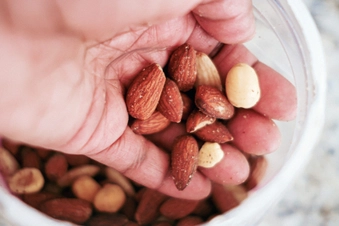
Healthy Snacks
There are lots of nutritious options to satisfy your cravings. Substitute sodas with herbal tea or naturally flavored water, desserts with dark chocolate or fresh fruit, and chips with nuts like walnuts or almonds. If you eat nuts regularly, you are 20% less likely to get heart disease.

Boost Your Fiber
There are two types of fiber: soluble and insoluble. Soluble fiber dissolves in water, traps fats, and helps lower cholesterol. You can find it in foods such as oats, apples, strawberries, oranges, avocados, bananas, beans, and cauliflower. Insoluble fiber is in whole grains, seeds, and green leafy vegetables. It does not lower cholesterol, but it makes you feel full and helps control your weight.
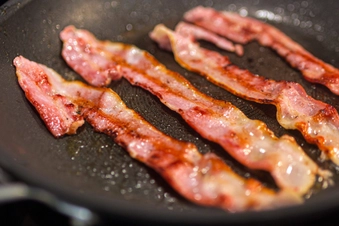
Limit Processed Meats
Bacon, ham, sausages, chorizo, and other processed meats (cured, smoked, or salted) have a lot of saturated fat and sodium, which can clog your arteries. Studies show a consistent link between eating a lot of processed meats and a higher chance of heart disease. Replace them with chicken, fish, or turkey to help keep your cholesterol under control and protect your heart health.
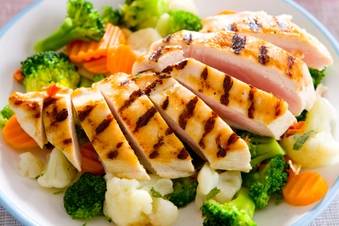
Choose Grilling or Steaming Over Frying
Fried and battered foods contain trans fats, which are made by adding hydrogen to vegetable oil. These fats harm your health because they raise “bad” cholesterol. Avoid lard, margarine, premade dough, cakes, pies, and store-bought cookies. Cook food in the air fryer, in the oven, or on the grill. Boiling meats, eggs, and vegetables is also a healthy choice.
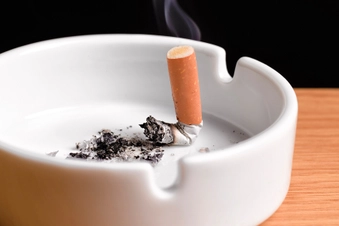
Quit Smoking
These everyday habits won’t have the same effect if you keep smoking. Smoking lowers your “good” cholesterol and raises “bad” cholesterol. Cigarettes contain free radicals and toxins that damage cells and blood vessels. This lowers the amount of “good” HDL cholesterol your body makes and stops it from working properly. Your doctor can suggest useful treatments to quit smoking that will improve your health and protect your heart.

Mocktails: Alcohol Alternatives
Moderation is key with alcohol. Drinking too much raises “bad” LDL cholesterol and triglycerides. Remember, there are four types of fat in your blood: total cholesterol, “good” cholesterol or HDL, “bad” cholesterol or LDL, and triglycerides. If you enjoy sipping a cocktail at the end of the day, try mocktails, which offer a healthier, nonalcoholic option.

Supplements
Some supplements can help lower your cholesterol. These include plant sterols, which are found in plants and help you absorb less cholesterol. Fish oil, niacin, and flaxseed are other examples. Talk to your doctor before taking these. Remember that the best way to get soluble fiber is by eating vegetables, grains, and fruits.
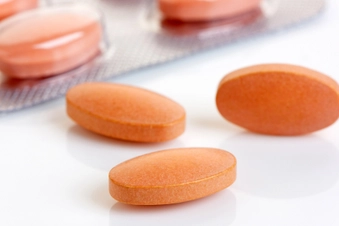
Medication
Medications can lower “bad” cholesterol levels. The most common ones are statins, a group of medicines that help lower the amount of “bad” cholesterol in your blood. Your doctor can prescribe a personalized treatment. Stick to it and keep up with your appointments to track your progress.

Family Is Key
Sometimes high cholesterol is genetic. For example, people with familial hypercholesterolemia (FH) have high LDL cholesterol starting at birth. Build healthy eating and exercise habits with your family: walk, go camping, or cook together. Despite practicing healthy habits, many people with FH can still have high cholesterol, especially LDL. They may need medication to lower their chance of getting heart disease, so it’s crucial to talk to a doctor.
Show Sources
IMAGES PROVIDED BY:
- iStock/Getty Images
- iStock/Getty Images
- Moment/Getty Images
- (Clockwise from top left): iStock/Getty Images, Moment/Getty Images, iStock/Getty Images, iStock/Getty Images
- Moment/Getty Images
- E+/Getty Images
- The Image Bank/Getty Images
- iStock/Getty Images
- iStock/Getty images
- iStock/Getty Images
- E+/Getty Images
SOURCES:
Mayo Clinic: “Cholesterol: Top foods to improve your numbers,” “Cholesterol-lowering supplements may be helpful,” “Trans fat is double trouble for heart health.”
Johns Hopkins Medicine: “5 Heart-Healthy Food Swaps.”
Harvard Health Publishing: “Fiber-full eating for better health and lower cholesterol.”
UCLA Health: “Soluble fiber: What it is and why you need it.”
Diabetes Care: “Red and Processed Meats and Health Risks: How Strong Is the Evidence?”
Cleveland Clinic: “Does Exercise Lower Cholesterol?” “High Cholesterol Diseases,” “Does Alcohol Affect Cholesterol?” “Statins.”
American Heart Association: “What is Familial Hypercholesterolemia?”